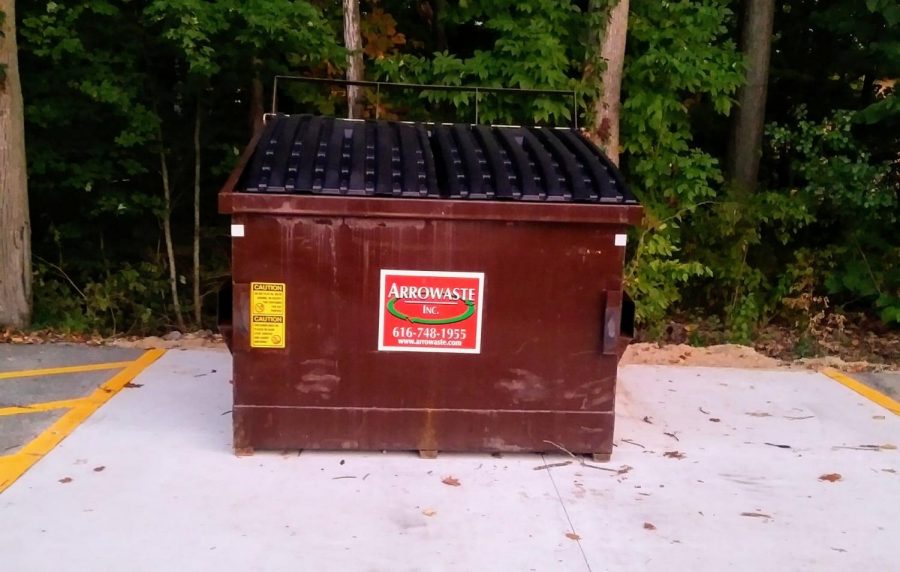Recycling to return to campus by early December
COVID concerns make recycling difficult.
Recycling bins will once again be dispersed across campus by early December. COVID-19 restrictions, not staffing reductions, have been the main source of delays in reintroduction of campus-wide recycling, according to John Haley, National Management Resources Corporation’s associate director of facilities for Calvin.
There are single stream dumpsters back in place by the facilities center and by the Knollcrest East apartments, and although pickup hasn’t started campus-wide yet, students and employees are invited to bring recycling there.
“We’ve been working closely with the [COVID Response Team],” Haley told Chimes, pointing to pandemic-related restrictions as the main source of delay in reintroducing recycling across campus. Despite having reduced staffing after the summer departure of over half of facilities staff, which started the semester with grounds crew at 85 percent capacity and maintenance at 75-80 percent capacity, “Manpower … has not been a hindrance,” according to Haley. “It’s just moreover, when we’re told we’re able to … get back to that [pre-pandemic] point.”
According to Haley, the main hold up has been related to concerns about contact during collection which have delayed getting a “green light” from the COVID Response Team. These concerns are magnified when recycling requires hand sorting to prevent contamination. Before the pandemic, three to five people typically had contact with recycling between its initial collection point and the single stream dumpster at facilities. These people were in contact with things “from hundreds, if not thousands, of people,” according to Haley.
Under pandemic restrictions, however, hand sorting is not possible. Individual recycling bins are being repainted and labelled while out of circulation in hopes that distinguishing them from regular trash bins will reduce contamination. According to Director of Facilities Russell Bray, contaminated loads can’t be recycled. Haley told Chimes this not only disrupts the recycling process, resulting in more trash being sent to landfills or incinerators, but also incurs extra expenses. Facilities is asking for the community’s help to reduce contamination, which includes bags, shredded paper, cords, cables, hoses, clothing, batteries and medical waste.






